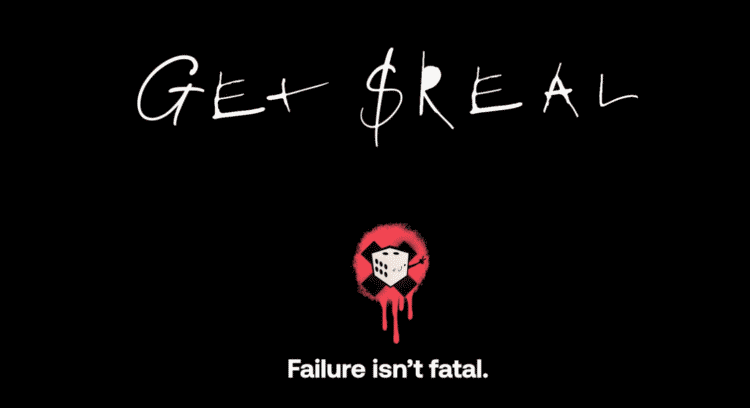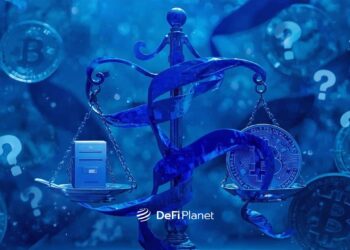Conor McGregor, the UFC legend known for knockouts and whiskey, decided to step into the crypto ring with a memecoin, $REAL. Launched on April 5, this token with staking rewards and voting power was supposedly ready to shake up the crypto market.
$REAL wasn’t just some internet joke coin either, it was backed by Real World Gaming DAO (RWG), the group formerly known as Balthazar DAO, with ties to big names like Animoca Brands, KuCoin Labs, Tezos Foundation, and Algorand.
Instead of a typical launch, they tried something different: a sealed-bid auction to keep out bots and sniper bids, a fair fight, in theory. The whole thing ran for just over a day, from April 5 to April 6, and McGregor promoted it hard to his combined 50+ million followers across Instagram and X.
It sounded like a knockout idea on paper. But what happened next?
What Happened?
Despite the hype, the $REAL’s presale landed with more of a fizzle than a bang. Over the 28-hour sealed-bid auction, it raised just $392,315, falling way short of its $1 million+ target. Ouch. To their credit, RWG didn’t try to spin it, they came clean on X:
“We need to be real. We didn’t hit our minimum raise. All bids will be refunded in full. This is not the end.”
So what went wrong? For starters, bad timing. Launching a memecoin during a crypto market slump is like throwing a party during a storm, no one’s showing up. The $REAL launch came at the worst possible time, right in the middle of a massive market crash. Bitcoin was already falling, and things got quickly worse due to US President Trump’s new tariff plans set for April 2, which raised fears of a looming recession.
According to Market Watch, on April 3 and 4, U.S. stocks lost around $6.6 trillion in value, the biggest two-day drop ever. So, trying to launch a new token while everyone’s panicking and watching their portfolios crash? Not exactly the best move.
Crypto analyst Dean Eigenmann also didn’t hold back either, dropping this savage quote:
“Change the game but retarded enough to launch when memecoins are dead and retail is broke; shoulda taken less hits to the skull.”
Brutal, but not entirely wrong.
Eigenmann makes a solid point. The once-explosive memecoin market is now in decline, with retail investors either broke, burned out, or both. According to Coingecko, the once-$100 billion memecoin market has recently fallen below $44 billion, and is down 2.2% over the last 24 hours.
The Libra (LIBRA) token scandal involving Argentine President Javier Milei in late February also worsened the downward trend. McGregor’s clout wasn’t enough to get wallets open. So even a flashy launch backed by a celebrity and major crypto firms couldn’t overcome the broader lack of interest in the space.
Lessons Learned
$REAL’s flop isn’t just a one-off misfire, it’s a textbook lesson in timing, audience, and understanding the mood of the market.
First, let’s talk about market sentiment. Even the best projects need the wind at their backs. Crypto, especially the memecoin space, thrives on hype, momentum, and FOMO. When the overall market is bearish and retail investors are licking their wounds from past losses, it’s not the moment to drop a “game-changing” token. It’s like trying to sell pool floats during a blizzard—no one’s in the mood.
Second, there’s investor readiness. Right now, most retail investors aren’t in a risk-taking mindset. They’re more cautious, skeptical, and low on disposable cash. Any project, celebrity-backed or not, needs to read the room. Big names alone don’t drive conversions anymore, especially if the coin looks like just another memecoin in a crowded, underperforming category.
Innovation alone also doesn’t guarantee success. $REAL tried something unique with a sealed-bid auction to keep things fair and bot-free. Cool move, but if there’s no excited crowd ready to participate, even a smart launch method can fall flat.
In short, crypto launches aren’t just about flashy marketing or celeb endorsements, they’re about aligning with the market’s emotional and financial temperature. Future projects would be wise to factor in timing, sentiment, and whether retail investors are truly ready to jump in.
What’s Next for Memecoins?
While $REAL may have stumbled, the broader memecoin space isn’t dead, it’s just evolving. Innovation and market maturity could potentially breathe new life into memecoins, but the key is figuring out how to adapt to changing dynamics. So, what’s next for this often-volatile sector?
For one, memecoins may not be going anywhere, but their role in the crypto ecosystem will likely shift. Instead of being mere “fun” coins driven by social media hype, we could see more projects trying to add utility, staking rewards, governance rights, or even integrating with DeFi ecosystems. Memecoins with value propositions will have a better chance of surviving the next cycle.
Another potential trend is the emergence of community-driven tokens that offer real-world use cases. This could include memecoins that empower their holders to vote on gaming ecosystems, participate in decentralized governance, or even unlock exclusive content, things that provide tangible, ongoing value beyond speculative trading.
Additionally, AI and NFT integration could also play a role. Imagine a memecoin tied to a virtual character or game ecosystem, where holders unlock new features or experiences as part of a larger digital economy. As the market matures, the focus could shift toward more interactive and immersive experiences, potentially shifting memecoins from jokes to cultural assets that resonate with evolving digital communities.
Disclaimer: This article is intended solely for informational purposes and should not be considered trading or investment advice. Nothing herein should be construed as financial, legal, or tax advice. Trading or investing in cryptocurrencies carries a considerable risk of financial loss. Always conduct due diligence.
If you would like to read more articles like this, visit DeFi Planet and follow us on Twitter, LinkedIn, Facebook, Instagram, and CoinMarketCap Community.
Take control of your crypto portfolio with MARKETS PRO, DeFi Planet’s suite of analytics tools.”





















